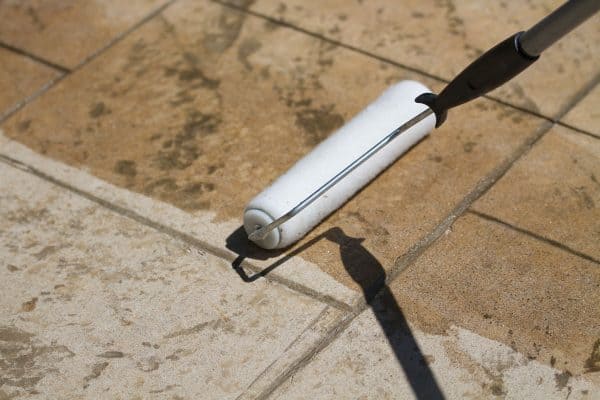Disclosure: We may get commissions for purchases made through links in this post.
Mosses are small clumps of velvety green plants that are commonly used to beautify the outdoor area. But can they grow on concrete and should you allow them to? That's what we asked expert landscapers and here's what they have to say.
Moss can grow on concrete, especially in those portions that are moist, hidden from the sun, and have no ventilation. Moss has no roots but it has threads that can hold onto the concrete surface so it can stay alive.
Meanwhile, concrete has a porous surface that can absorb water which is what mosses need to survive. Moss on concrete can weaken its structure. When it grows along walkways and pathways, it can present safety risks since the surface will become slippery. Therefore, it isn't recommended to grow moss on concrete pavements.
Hang in there as we tell you more about why moss grows on concrete surfaces and how you can kill and prevent it from invading your pavement. We'll also share with you the best time of the year to apply your moss killer. Let's get this started!
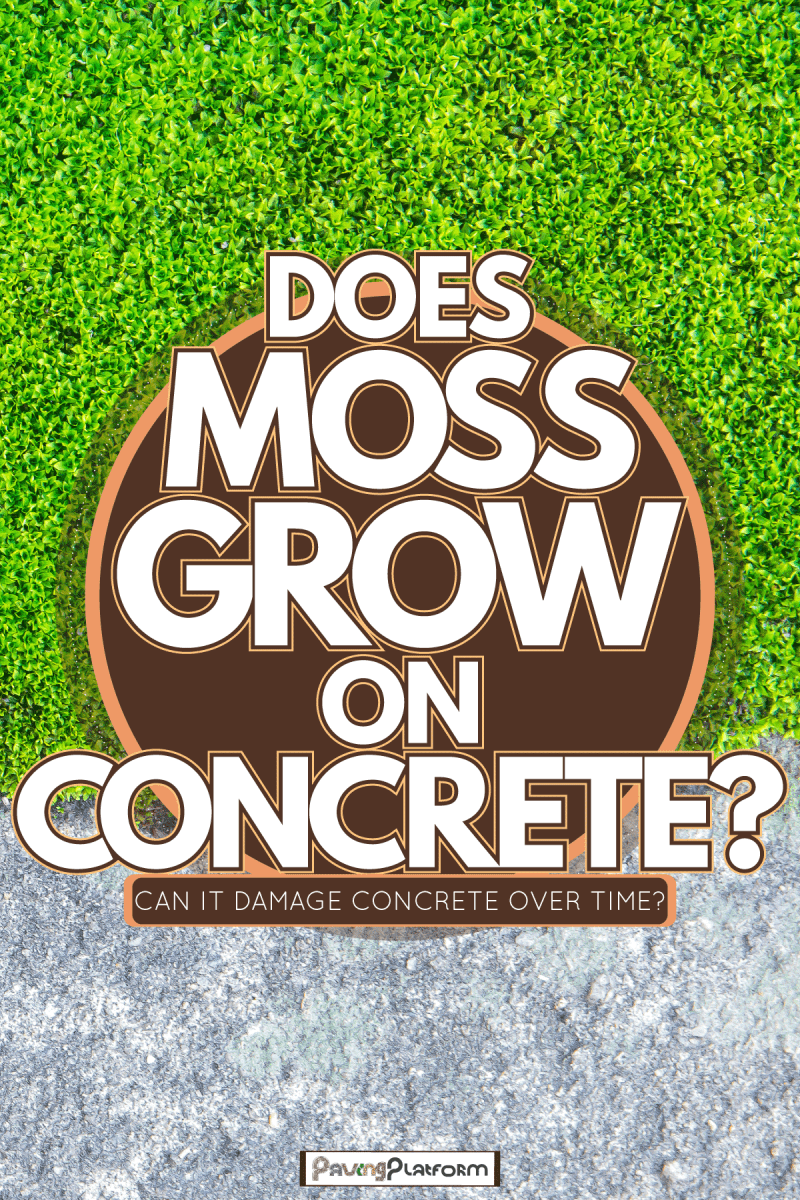
Does moss harm concrete?
Mosses are those small green plants that you might have seen covering the whole surface of some walls. They can soften the feature of a given structure with their dainty look and they definitely add a touch of nature to their surroundings.
It's no wonder then for some homeowners who've got concrete walls in their outdoor area to want to recreate that look in their hardscapes. But will they be successful in their attempt? Can they grow moss on concrete and would it be wise to do so?
Yes, moss can grow on concrete and populate the whole surface area. There's no disputing that moss can enhance the look of your concrete outdoor area especially if it suits your preference. But you might also be asking yourself if it could harm your concrete pavement.
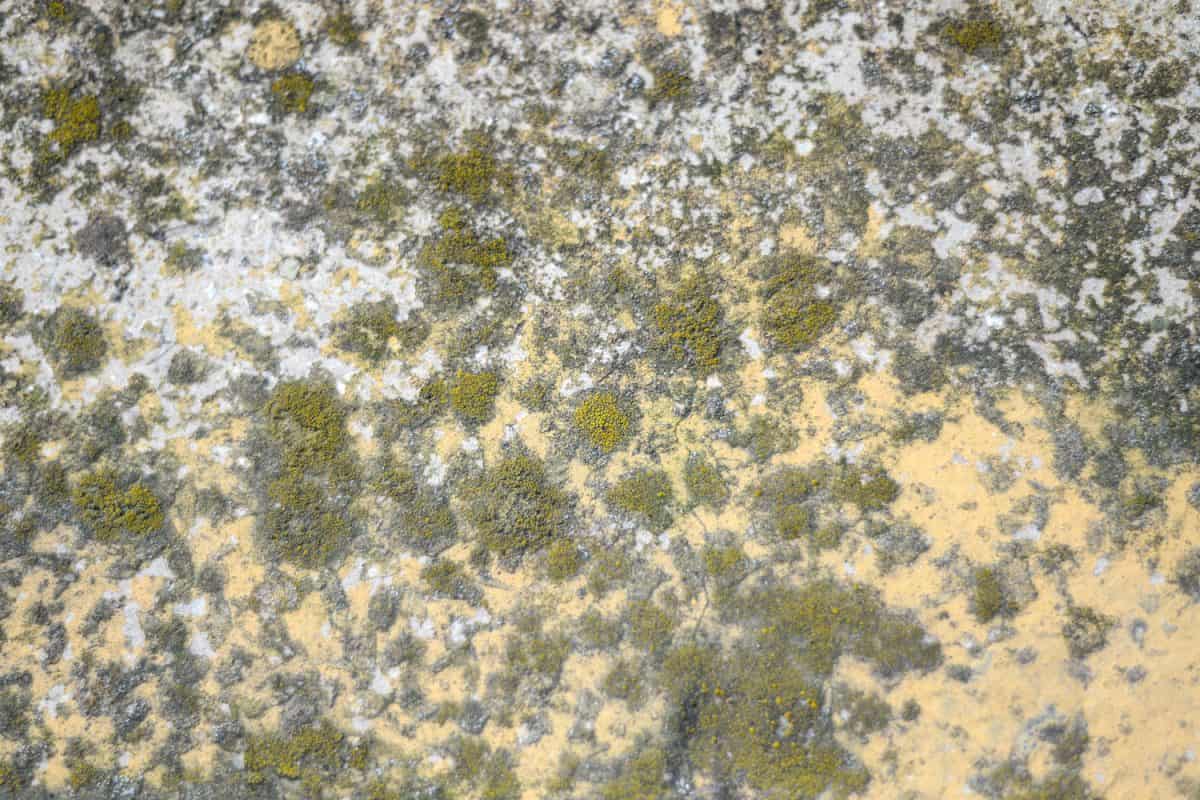
Some experts warn homeowners regarding the possibility of disintegration of the concrete surface. Since moss holds moisture, the concrete is always wet. Eventually, it can weaken and affect the structural integrity of your concrete pavement. In effect, it will have a shorter lifespan than expected.
It is also best to restrict its growth on your concrete pavement. It can pose safety risks when it grows on the patio deck, walkways, pathways, and basically, any area where people can step on it because moss on concrete will make it slippery.
So, if you still want to go after that moss-covered look, you can have it grow on your concrete walls instead to prevent accidents. Safety should always be your top priority.
Why does moss grow on concrete?
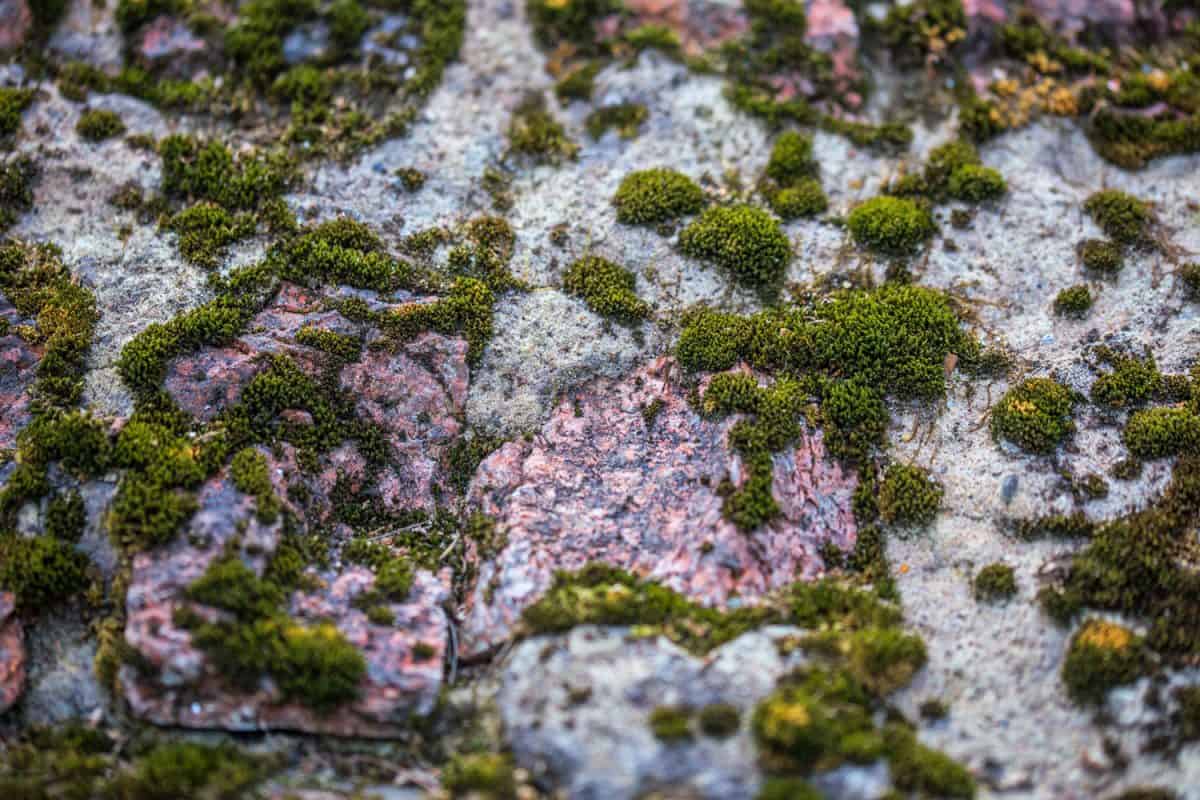
The answer to this question lies in moss' biological structure and at the same time, concrete's physical and chemical composition.
Moss is a non-vascular plant. This means that it is only composed of simple tissues with specialized functions that will allow the transport of water and nutrients internally. This is also the reason why mosses are low-growing plants or cannot grow tall. They do not have conducting channels that'll make it possible to bring nutrition to different parts of the plant.
Moss can attach itself on surfaces such as concrete through its threads that are also referred to as rhizoids. These threads are also responsible for absorbing water on the surface because moss plants don't have roots.
As for concrete, it is a porous material which means that it absorbs water. The moss' rhizoids can attach to its damp surface and absorb the water in the concrete. This hardscape material can also contain additives such as limestone and acids that promote the growth of these non-vascular plants.
So basically, mosses can grow on any surface, concrete included, as long as favorable conditions exist. These conditions are moisture, shade, and no ventilation. They need water to survive. They don't need the sun and wind to dry out the water because it is their main source of nutrition. Otherwise, they will die.
How to Kill and Prevent Sidewalk and Patio Moss
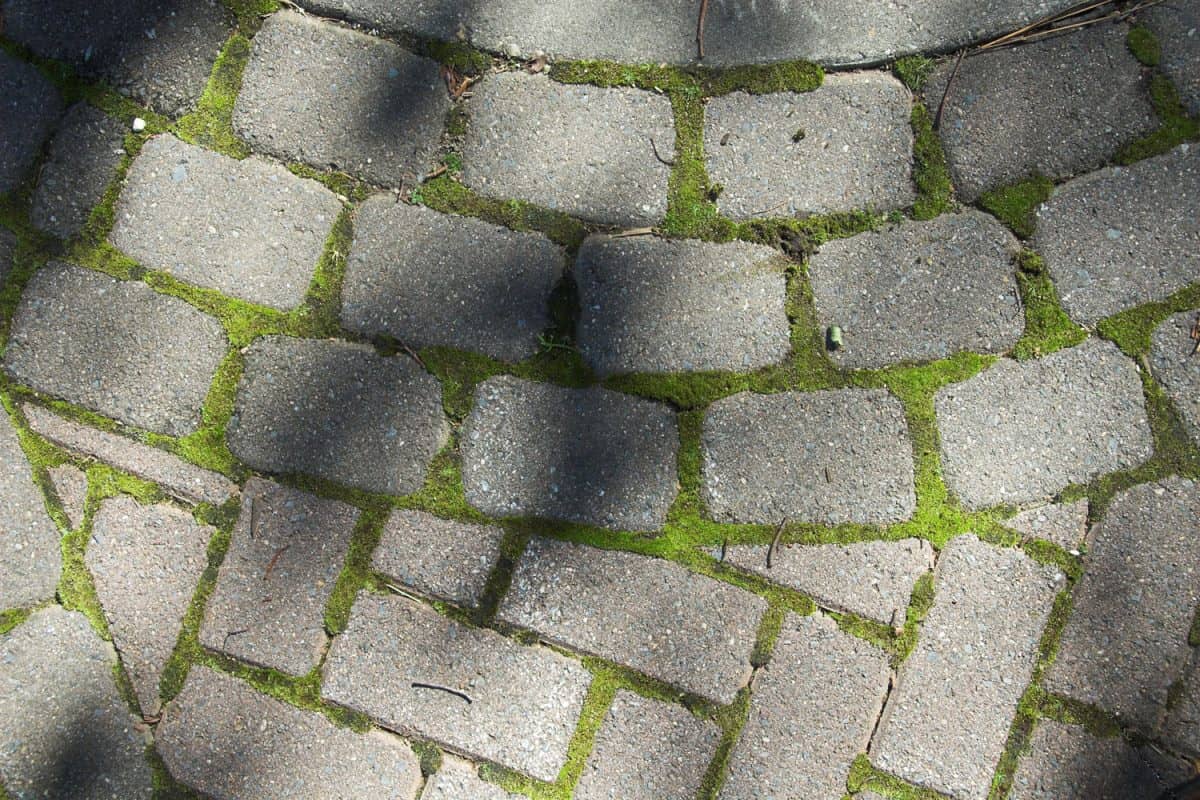
As mentioned above, moss can grow on your concrete pavement but you shouldn't allow it to spread, or else it can damage the surface and make it slippery. To prevent this from happening, you should kill moss that's threatening to cover your pathways and patio. Here's how you can do it.
- Always clean your concrete sidewalk and patio using a broom or leaf blower. This will prevent the accumulation of dirt, mulch, and debris that moss can also attach to.
- Remove any standing water on your pavement. Make sure that it is dry as soon as the weather permits. Remember, moss thrives in a moist environment.
- When you see moss forming on the surface, remove it immediately. A stiff brush can do the trick and then use a water hose to wash off the moss. You can also pour boiling water over it before brushing to make the job easier.
- If there is a continuous presence of moss, you can use a bleach solution. Mix one part bleach with one part water. It is best to put it on a water spray bottle so that you can apply it specifically to the affected area only. Bleach is a harsh chemical that can affect not just your concrete surface but also the plants and other elements around your pavement. Allow the bleach to sit for 30 seconds before brushing the mossy surface.
- You can also look for moss killers that are safe to use on concrete pavement. These are available in gardening supplies. Check the manufacturers' instructions regarding their safe application.
Check out this moss killer on Amazon.
There you have it! Just always remember to clean, wash, and keep your sidewalks and patios dry to kill and prevent moss growth.
Does baking soda get rid of moss?
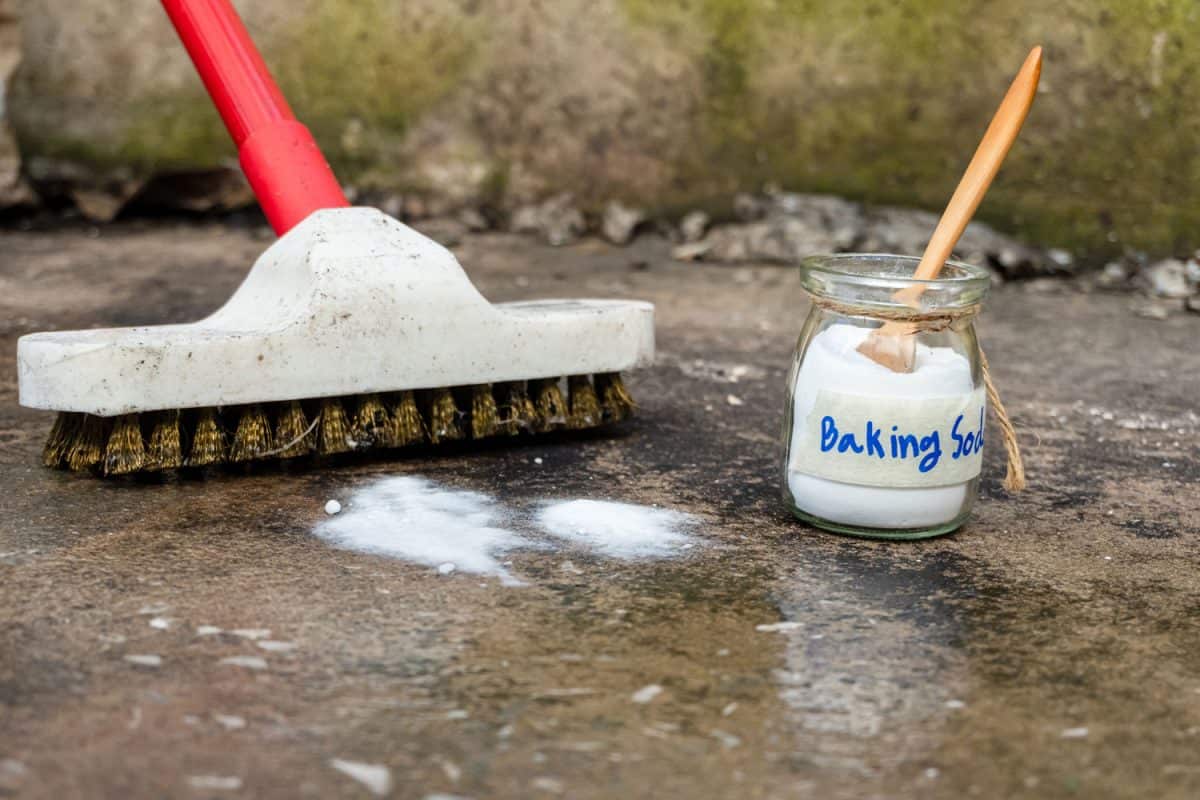
For those who do not want to buy commercial products because of their chemical content, you can sprinkle baking soda on the affected area. Experts say that this will be just as effective in killing moss as other products mentioned above. Moss thrives in places with high acidic content. The active ingredients in baking soda will be able to neutralize or balance the pH level.
After sprinkling the baking soda, just leave it there for 24 hours. The following day, you can proceed to sweep or brush the moss. Remove any excess baking soda on the surface.
What time of year should I apply moss killer?
There is such a thing as the best time of the year to apply a moss killer. This is to maximize the effectiveness of the product and make the most of your effort. Experts say that this is best done during fall or early springtime. This is the time when moss is at its peak growth. But check the weather as it's best done when the forecast says that it's not going to rain for several days.
To finally make your concrete pavement moss-free, you also need to address the conditions in your sidewalks or patios that allow moss to thrive. Make sure that there's proper ventilation. You can trim the trees and shrubs around the area to allow sunlight and wind to pass through. This will help ensure that your pathways are safer to walk on and prevent accidents from happening.
Final Thoughts
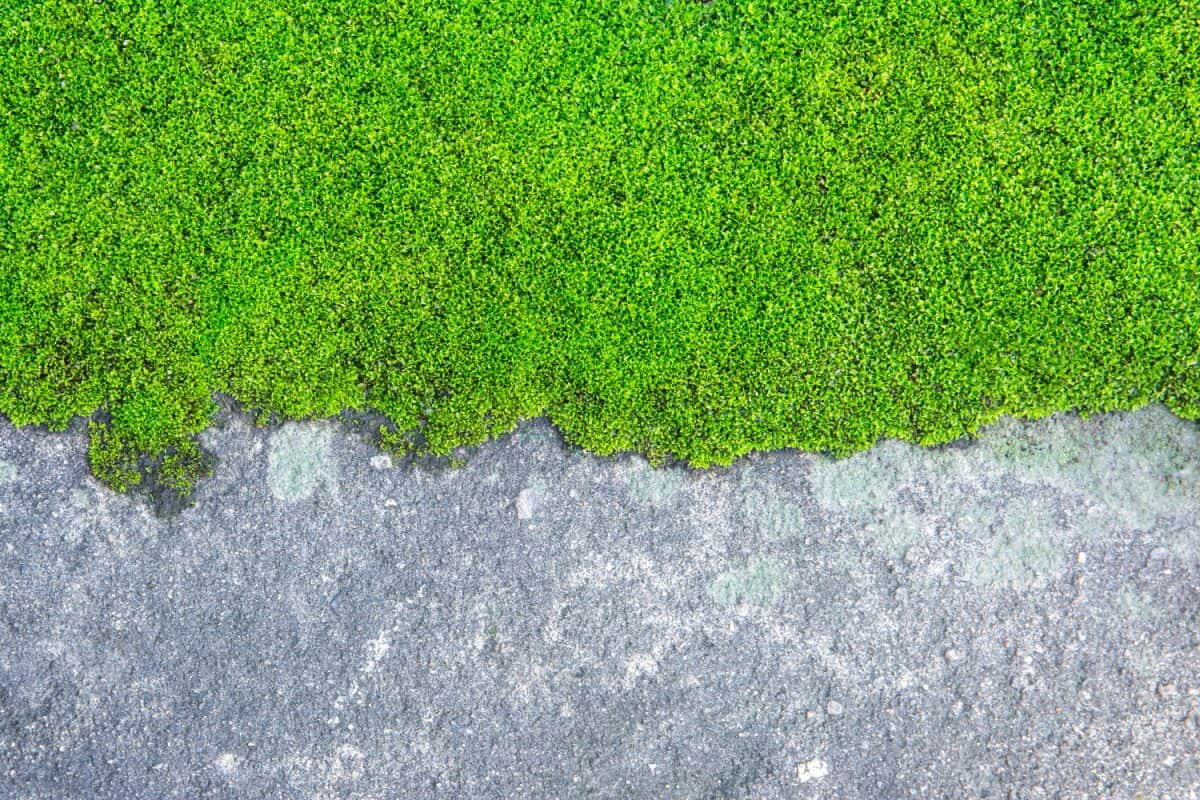
Moss can grow on concrete. While it may look appealing on concrete walls since they add a touch of nature to your outdoor space, be cautious because this plant can shorten concrete's lifespan and make its surface slippery.
To read more about concrete pavements, you may visit the following links:


![Vibrant Red Paver Stone Path, Can You Spray Paver Sealer? [How To Apply It]](https://pavingplatform.com/wp-content/uploads/2022/04/Vibrant-Red-Paver-Stone-Path-600x400.jpg)
![Properly laid out red pavers for a garden, Can You Tint Paver Sealer? [And How To]](https://pavingplatform.com/wp-content/uploads/2022/04/Properly-laid-out-red-pavers-for-a-garden-600x400.jpg)
